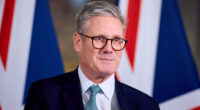Why Cameroon’s Elections Are a Cruel Farce for Anglophones
By Mark Bareta
In the theatre of Cameroonian politics, the stage is set for yet another predictable performance: Paul Biya, the eternal president, will secure victory without breaking a sweat. No rallies, no speeches—just ministers cutting ribbons in their hometowns while someone else manages his Twitter account, projecting an illusion of control. For the people of Southern Cameroons—Southwest and Northwest regions—this so-called election is not just a charade; it’s a slap in the face.
Francophone elites, who claim to champion unity, have once again exposed their blind spot: the Anglophone crisis. If they truly grasped the depth of the divide tearing Cameroon apart, they would seize this moment to bridge it. Imagine the power of a unified opposition—Maurice Kamto, Cabral Libii, and others—rallying behind a figure like Joshua Osih or Akere Muna, an Anglophone leader who has pushed for constitutional reforms. Declaring, “It’s time for an Anglophone president,” could send a seismic message of reconciliation to moderate Anglophones still invested in the system. It could shift the tide, offering a glimmer of hope to a people battered by years of marginalization, bloodshed, and military brutality.
But no. The very idea of an Anglophone president seems unthinkable to the Francophone elite. Instead, we see figures like Kamto aligning with other Francophones, such as Tchiroma, while sidelining Anglophone voices. This isn’t just political strategy—it’s a betrayal of the unity they preach. The opposition’s failure to elevate an Anglophone leader isn’t just a missed opportunity; it’s a loud declaration that Anglophone aspirations don’t matter.
The electoral system itself is a rigged machine designed to churn out the same result: Biya’s victory. Public funds are doled out for “campaigns” that never happen. The Constitutional Council, the supposed guardian of electoral integrity, shamelessly declares itself “incompetent” to publish a voter list. How can a nation hold an election when the basic question of who can vote remains unanswered? Cameroonians are not just denied a voice—they’re denied the ability to even know if their vote counts.
For Ambazonians, this election is irrelevant. Why would a people who have endured military brutality, displacement, and bloodshed care about a process that excludes them at every turn? The system has shown its true colours, and they are stained with the suffering of Southern Cameroons. The real question isn’t whether Biya will win—it’s whether Cameroonians can ever vote and defend their vote. The answer, resoundingly, is no.
This is why Ambazonians must turn inward, regroup, and empower their forces to protect their people. The dream of inclusion in Cameroon’s broken system is dead. The path forward lies in self-determination, in building a future where the voices of Southern Cameroons are not just heard but respected. This election is not our fight—it’s a reminder that our struggle is far from over.





